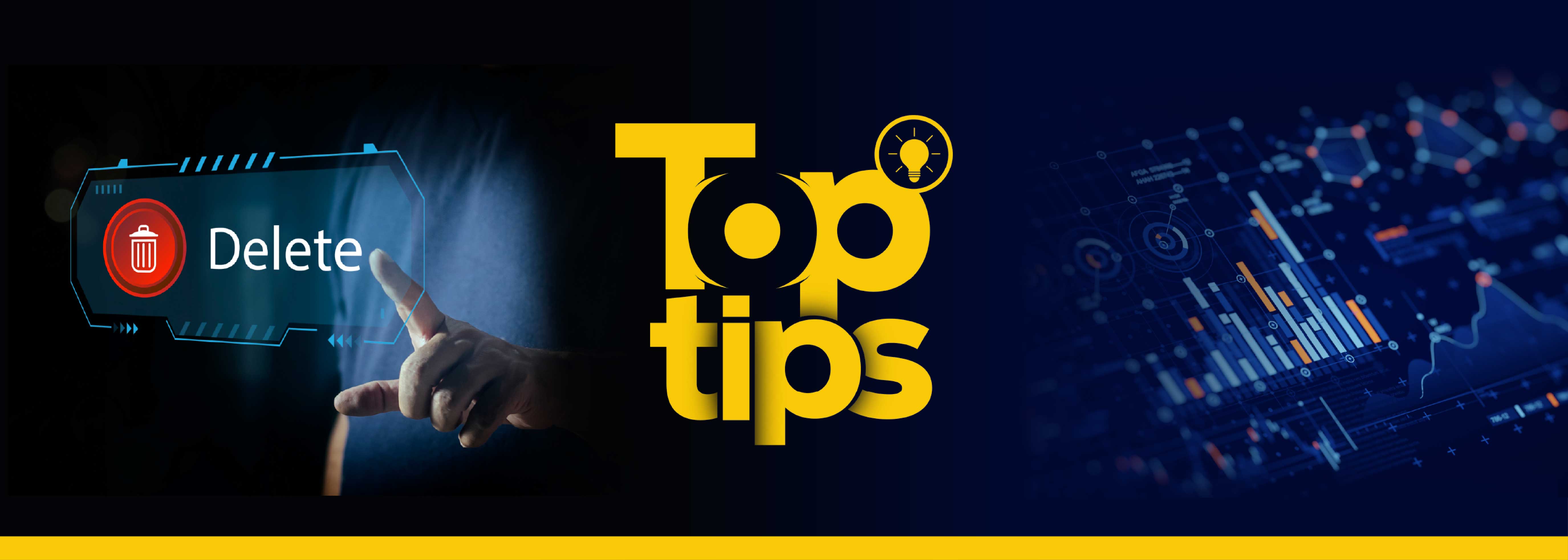Top tips: What happens to your data after you delete an app?

Top tips is a weekly column where we highlight what’s trending in the tech world and share ways to stay ahead. This week, we’re uncovering the truth about app deletion, why removing an app from your phone doesn’t always mean your data is gone, and how to make sure your personal information doesn’t keep following you long after you’ve tapped uninstall.
I recently found myself staring at my phone’s home screen. It felt cluttered. There were apps I hadn't used in months, notification badges piling up, and this strange feeling that I was being watched a little too closely.
So I started clearing things out.
I deleted an old shopping app that used to know exactly what I liked. Then I removed the smart home app I hadn't opened for ages. The fitness tracker went next. One by one, I watched the icons disappear from my screen. It felt good. Like finally cleaning out a messy drawer that had been bothering me for too long.
But that feeling didn't last long.
Later that night, as I was scrolling, I noticed an ad for a product I had once searched for on the now-deleted shopping app. The same product. Same color. Same brand.
Even though I had deleted the app, still, somehow, it found me.
That's when it hit me: I had deleted those apps from my phone. But those apps hadn’t deleted me.
Removing an app doesn't always mean your data disappears with it. Most of the time, your information stays behind. It sits on a server to get passed around, studied, and sometimes, it shows up when you least expect it.
In this week's Top Tips, we'll explore what really happens when you tap uninstall and what steps you can take to make sure your data doesn't stick around long after you're done with an app.
1. Deleting the app doesn’t mean deleting the data
Before you delete an app, take a moment to check the app's privacy policy. Look for sections called data retention, deletion, or third-party sharing. This will give you a better idea of how long your information will stick around and who else might have access to it.
Action step:
Search for the app's privacy policy online or in the app settings. If it's vague or unclear, assume your data may be staying put. To protect yourself, you can contact the company directly to ask how they handle your data after deletion. You can also limit permissions the app has on your device (like location or contacts) before uninstalling.
Did you know?
72.6% of iOS apps collect personal user data.
Free apps are four times more likely than paid ones to collect and keep data even after deletion.
2. You can ask for your data to be fully erased
To take care of any lingering personal data, don’t just delete the app—request your data to be erased directly from the company. Look for a "Delete my data" option, or contact the company's support team. Don't forget to ask for written confirmation once it’s done.
Action step:
Send a simple email or use a built-in tool (if available) to ask for your personal data to be erased. Mention your legal rights, especially if you’re in a region covered by data protection laws.
Quick stat:
Only 23% of American smartphone users feel in control of their personal data.
Just 3% say they fully understand privacy laws and what happens after app deletion.
3. After deleting, watch for lingering traces of tracking
After deleting an app, do a quick audit of your device and accounts. Look out for signs that your data might still be in use, such as a lot of targeted ads for the deleted app or continuing to receive emails or notifications from the company.
Action step:
Revoke the app’s permissions in your phone settings, like access to location, contacts, or camera. Disconnect any linked accounts the app may have used. Then, run a privacy checkup using built-in tools or online dashboards (such as Google’s Privacy Checkup, Apple’s App Privacy Report, or your app store’s privacy settings) that help you review and adjust your privacy controls.
Did you know?
Food delivery and social media apps track an average of 20+ data points per user.
Most of this data remains even after deletion, unless you remove it manually or request its removal.
It doesn’t end with delete
I started decluttering my home screen to free up space. I didn’t know I was freeing myself from a trap.
While deleting an app helps, it's not the only step. Check what data's being kept, ask for full deletion, and clean up your account links. These small steps can go a long way in making sure your data doesn't come back to haunt you.
Because in today’s world, staying private takes more than just tapping uninstall.